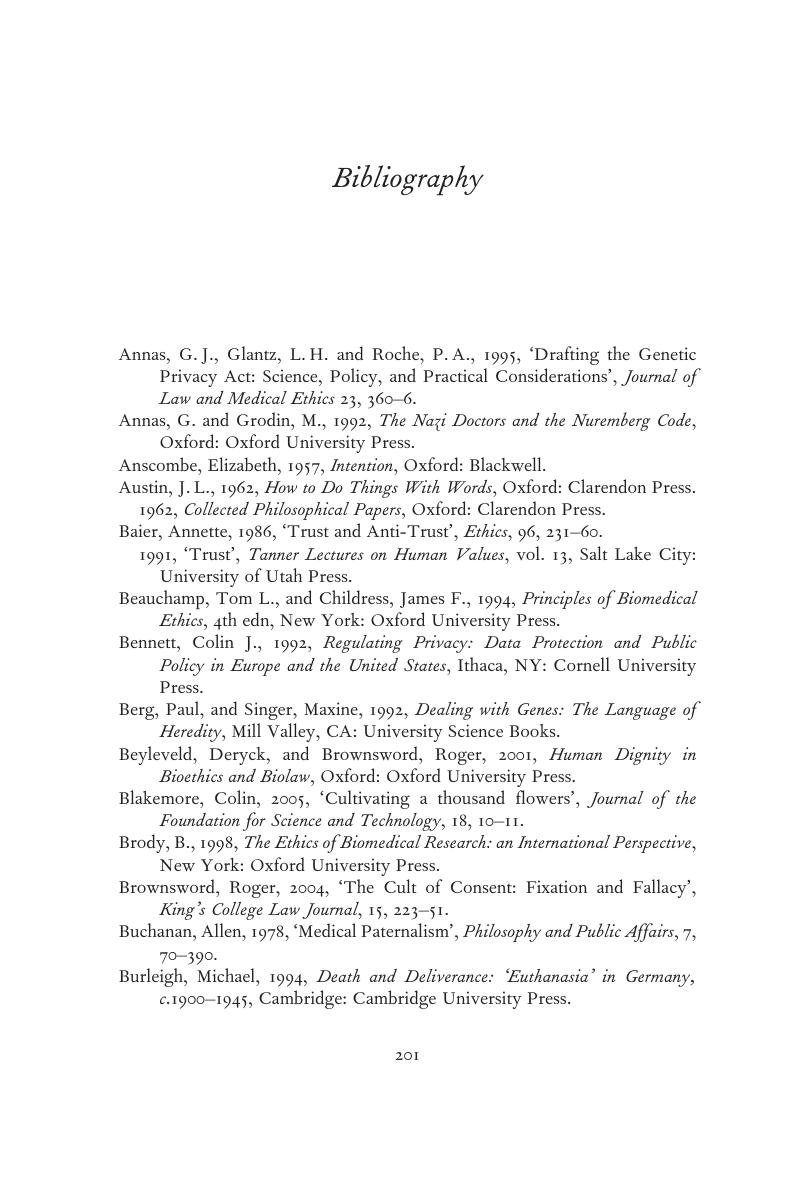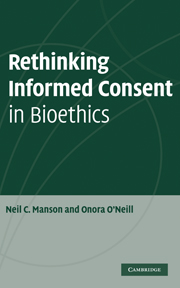Book contents
- Frontmatter
- Contents
- Preface
- Acknowledgements
- 1 Consent: Nuremberg, Helsinki and beyond
- 2 Information and communication: the drift from agency
- 3 Informing and communicating: back to agency
- 4 How to rethink informed consent
- 5 Informational privacy and data protection
- 6 Genetic information and genetic exceptionalism
- 7 Trust, accountability and transparency
- Some conclusions and proposals
- Bibliography
- Institutional sources and documents
- Index
- References
Bibliography
Published online by Cambridge University Press: 05 June 2012
- Frontmatter
- Contents
- Preface
- Acknowledgements
- 1 Consent: Nuremberg, Helsinki and beyond
- 2 Information and communication: the drift from agency
- 3 Informing and communicating: back to agency
- 4 How to rethink informed consent
- 5 Informational privacy and data protection
- 6 Genetic information and genetic exceptionalism
- 7 Trust, accountability and transparency
- Some conclusions and proposals
- Bibliography
- Institutional sources and documents
- Index
- References
Summary

- Type
- Chapter
- Information
- Rethinking Informed Consent in Bioethics , pp. 201 - 206Publisher: Cambridge University PressPrint publication year: 2007



